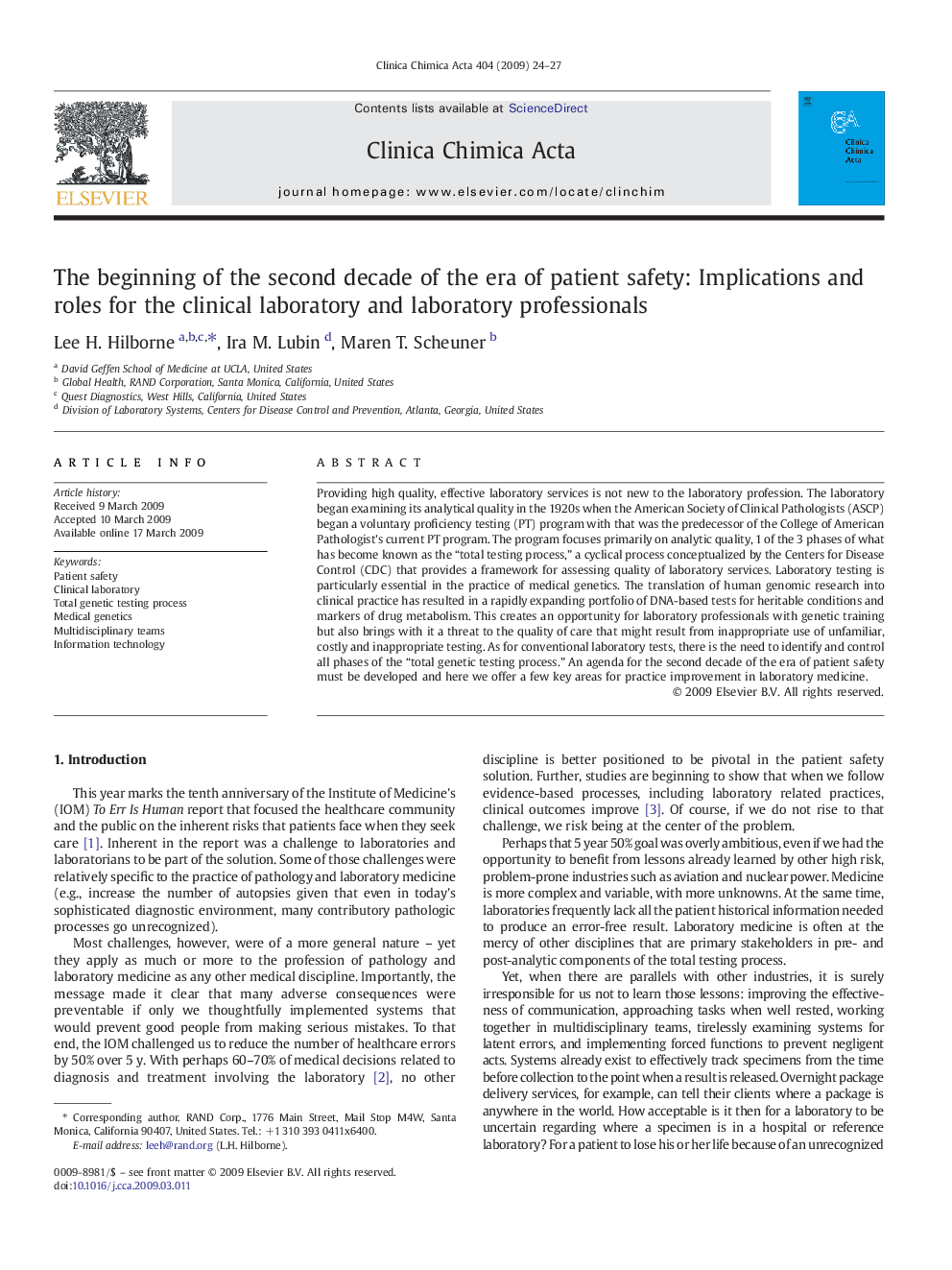| Article ID | Journal | Published Year | Pages | File Type |
|---|---|---|---|---|
| 1966092 | Clinica Chimica Acta | 2009 | 4 Pages |
Abstract
Providing high quality, effective laboratory services is not new to the laboratory profession. The laboratory began examining its analytical quality in the 1920s when the American Society of Clinical Pathologists (ASCP) began a voluntary proficiency testing (PT) program with that was the predecessor of the College of American Pathologist's current PT program. The program focuses primarily on analytic quality, 1 of the 3 phases of what has become known as the “total testing process,” a cyclical process conceptualized by the Centers for Disease Control (CDC) that provides a framework for assessing quality of laboratory services. Laboratory testing is particularly essential in the practice of medical genetics. The translation of human genomic research into clinical practice has resulted in a rapidly expanding portfolio of DNA-based tests for heritable conditions and markers of drug metabolism. This creates an opportunity for laboratory professionals with genetic training but also brings with it a threat to the quality of care that might result from inappropriate use of unfamiliar, costly and inappropriate testing. As for conventional laboratory tests, there is the need to identify and control all phases of the “total genetic testing process.” An agenda for the second decade of the era of patient safety must be developed and here we offer a few key areas for practice improvement in laboratory medicine.
Keywords
Related Topics
Life Sciences
Biochemistry, Genetics and Molecular Biology
Biochemistry
Authors
Lee H. Hilborne, Ira M. Lubin, Maren T. Scheuner,
